Scoring a low price on generic Abilify (aripiprazole) online can save you a lot-if you buy from a legitimate, licensed source. Go the wrong way and you risk fake pills, customs seizures, or a break in treatment. This guide shows you how to find a real bargain without cutting corners, the legal basics for New Zealand, and the exact red flags to avoid.
Set expectations upfront: you still need a valid prescription for aripiprazole, prices vary by strength and pack size, and international shipping can take 1-3 weeks. If you’re in New Zealand, there’s a good chance a local pharmacy price (or a subsidy) beats many overseas sites once you factor in GST and delivery. If you do import, you need to meet Medsafe’s personal import rules. Let’s make this simple and actionable.
What you’re actually buying: aripiprazole basics, forms, and real-world dosing
Aripiprazole is an atypical antipsychotic used for schizophrenia, bipolar I disorder (acute mania and maintenance), adjunctive therapy in major depressive disorder, irritability in autism, and Tourette’s in some cases. It acts mainly as a partial agonist at dopamine D2 and serotonin 5-HT1A receptors and an antagonist at 5-HT2A. In plain terms: lower sedation and weight gain vs some older options, but a higher chance of restlessness/akathisia for some people.
Why this matters for buying online: you’re not shopping for a quick fix-you’re keeping a long-term treatment steady. That means consistency in dose, timing, and manufacturer matters more than shaving off a few cents. Also, aripiprazole’s long half-life (about 75 hours in adults) means missed doses don’t hit immediately, but steady-state levels take roughly two weeks to rebuild. That affects how you plan refills and shipping buffers.
What “generic” means: when your pack reads “aripiprazole” instead of “Abilify,” it must meet bioequivalence standards to the brand-same active ingredient, similar absorption profile, and proven quality per the regulator it’s approved under (e.g., Medsafe in NZ, FDA in the US, EMA in the EU). Different generics can look different (color/shape), but the active dose is the same. Stick to one manufacturer if you’re sensitive to excipients or you’ve previously noticed differences.
Common dose forms and how they show up in online listings:
- Film-coated tablets: 2 mg, 5 mg, 10 mg, 15 mg, 20 mg, 30 mg (most common online).
- Orally disintegrating tablets (ODT): 10 mg, 15 mg (often priced higher).
- Oral solution: 1 mg/mL (less common online; more expensive to ship).
- Long-acting injection (aripiprazole depot): clinic-administered only; not suitable for online purchase.
Typical adult dosing ranges your prescriber might use (not medical advice):
| Indication | Typical Daily Range | Notes That Affect Buying/Refills |
|---|---|---|
| Schizophrenia | 10-30 mg | Once-daily; half-life ≈75 h; plan 2-3 weeks buffer when ordering overseas |
| Bipolar I (acute mania/maintenance) | 15-30 mg | Start or adjust under prescriber; depot options exist but not for online purchase |
| Adjunct in major depression | 2-15 mg | Lower doses common; splitting higher-strength tablets may be allowed if scored |
| Autism-related irritability | 5-15 mg (weight-based in youth) | Paediatric use needs close monitoring; avoid self-sourcing without prescriber |
Key safety points that influence where and how you buy:
- Boxed warnings: increased mortality in elderly patients with dementia-related psychosis; monitor for suicidal thoughts, especially in younger people starting or changing dose.
- Common side effects: akathisia/restlessness, insomnia, nausea, dizziness; metabolic effects can occur (weight, lipids, glucose) but often less than with some other antipsychotics.
- Serious but rare: neuroleptic malignant syndrome, tardive dyskinesia, severe allergic reactions.
- Interactions: metabolized by CYP2D6 and CYP3A4. Strong inhibitors (e.g., fluoxetine, paroxetine) and inducers (e.g., carbamazepine) can change levels-dosing usually needs adjustment. This is exactly why a pharmacist review matters.
Credibility checkpoints: In New Zealand, aripiprazole is a prescription-only medicine. Medsafe’s guidance on buying medicines online (latest updates 2023-2024) makes two things clear: you need a prescription from a registered prescriber for personal import, and you should only use licensed pharmacies. Internationally, the FDA’s BeSafeRx (2024) and the NABP’s accreditation programs outline similar steps to avoid rogue pharmacies. WHO’s 2017 analysis found a notable rate of substandard or falsified medicines in international supply chains, especially when sourcing from unverified sellers-so verification isn’t a nice-to-have; it’s essential.
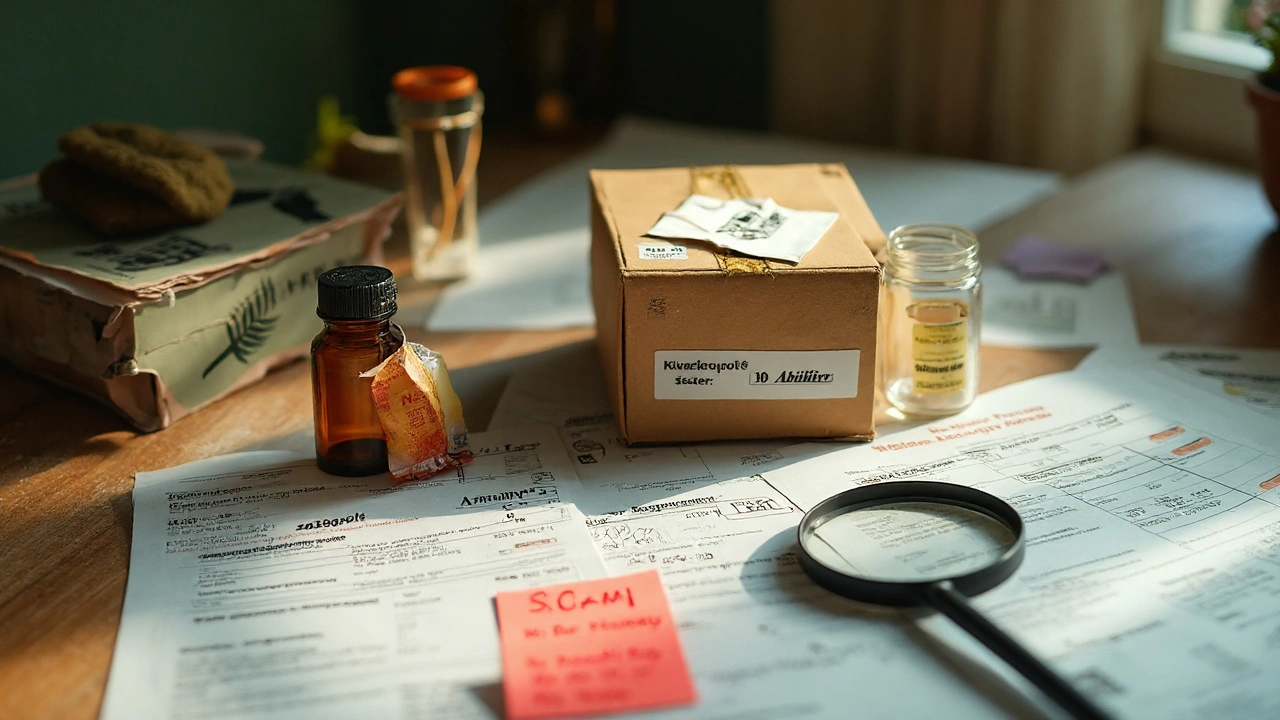
How to get the lowest safe price in NZ (without getting stung)
Here’s the fast path to a legit low price that protects your treatment and your wallet.
- Check local pricing first. Ask your pharmacist for a quote for your exact strength and volume, and check whether it’s subsidised under the current Pharmac schedule. If it is, the co-pay may beat most online offers once you add GST and shipping.
- If you prefer online (NZ-based), use a licensed community pharmacy with mail-out or click-and-collect. You’ll still provide your prescription, but you’ll get the convenience and a valid invoice for your records.
- Only if you must import, do it legally: up to 3 months’ personal supply, original packaging, include a copy of your valid NZ prescription, and ensure the medicine isn’t a controlled drug (aripiprazole isn’t). Keep any documentation (invoice, prescriber details, product information leaflet). Medsafe and NZ Customs can detain packages lacking documentation.
- Compare prices by mg, not by pack. A 30-tablet pack of 10 mg (300 mg total) vs a 15 mg pack (450 mg total) can make the per-mg price look very different.
- Stick with one manufacturer if price is similar, to avoid switching excipients unexpectedly.
Quick price math you can use in seconds:
- Price-per-mg = total pack price ÷ (tablets × mg per tablet). Target a fair price band, not the absolute cheapest.
- Price-per-day = price-per-mg × your dose. Multiply by 30 for monthly cost.
Indicative ranges seen across 2024-2025 retail quotes and tariffs (NZ, AU, UK, and US reference data; specific stores vary):
- 10 mg tablet generic aripiprazole: roughly NZD $0.30-$1.20 per tablet depending on pack size and source.
- 15 mg tablet: usually a tad higher per tablet; sometimes similar when bought in larger packs.
- ODT forms: typically 20-50% more than standard tablets.
Don’t anchor on a single low number. If a site claims NZD $0.05 per 10 mg tablet with free global shipping and no prescription, assume trouble. Real wholesalers don’t sell at a loss and reputable pharmacies do not ship prescription medicines without a script.
What a legit online checkout looks like:
- Prescription upload or verification with your prescriber.
- Company details are transparent: legal name, physical pharmacy address, pharmacist contact.
- Secure checkout (https), major card options, clear return/refund policy for damaged items.
- Medication arrives in sealed, clearly labelled blister/bottle with batch number, expiry, and a product information leaflet in English.
Red flags to avoid-if you spot any two, walk away:
- No prescription required for a prescription-only medicine.
- Only accepts crypto, gift cards, or wire transfers.
- Unbranded or vague manufacturer, or packaging without batch/expiry.
- Prices far below the low end of the market without a credible reason (e.g., close-dated stock clearly labelled).
- Website hides contact details or lists a non-pharmacy PO box as the only address.
Use this quick checklist before you hit “buy”:
- Prescription ready and matches the product you’re ordering (strength, form, quantity).
- Pharmacy license verified (NZ: Pharmacy Council register; international: regulator accreditation or NABP/Digital Pharmacy recognition).
- Total landed cost calculated: item price + shipping + GST (if applicable) + currency conversion fees.
- Delivery window fits your refill buffer (aim 2-3 weeks spare if importing).
- Pharmacist contact available for interactions and dosing questions.
| Channel | Indicative Price/10 mg tab (NZD) | Delivery to NZ | NZ Prescription Required | Verification | Best For |
|---|---|---|---|---|---|
| Local NZ community pharmacy | $0.40-$1.20 | Same day-2 days | Yes | Pharmacy Council register; Medsafe rules | Fast, reliable, advice; potential subsidy |
| NZ online pharmacy (mail-out) | $0.40-$1.10 | 1-4 days | Yes | Licensed premises; pharmacist on staff | Convenience + legit oversight |
| International online pharmacy (reputable) | $0.25-$0.90 | 7-21 days | Yes (include copy in parcel) | Regulator accreditation; avoid no-Rx sites | Lower unit cost if no local subsidy |
Tip: Larger packs often cut per-tablet cost, but don’t exceed the 3-month personal import limit. If you’re dosing 10 mg/day, three months is about 90 tablets of 10 mg. If you take 15 mg/day, 90 tablets of 15 mg or a mix that matches your script.
One more thing on timing: because aripiprazole’s steady state takes about two weeks, build a safety margin. If you’re in Wellington or anywhere outside major NZ hubs, assume the top end of delivery windows in peak seasons.
Where to start your search: use a licensed NZ mail-order pharmacy first. If you can’t get a good price, then consider a well-accredited overseas pharmacy that ships to NZ and requires a prescription. Phrase your search along the lines of buy generic Abilify online and pair it with “licensed pharmacy” or the country’s regulator name when you check credentials.
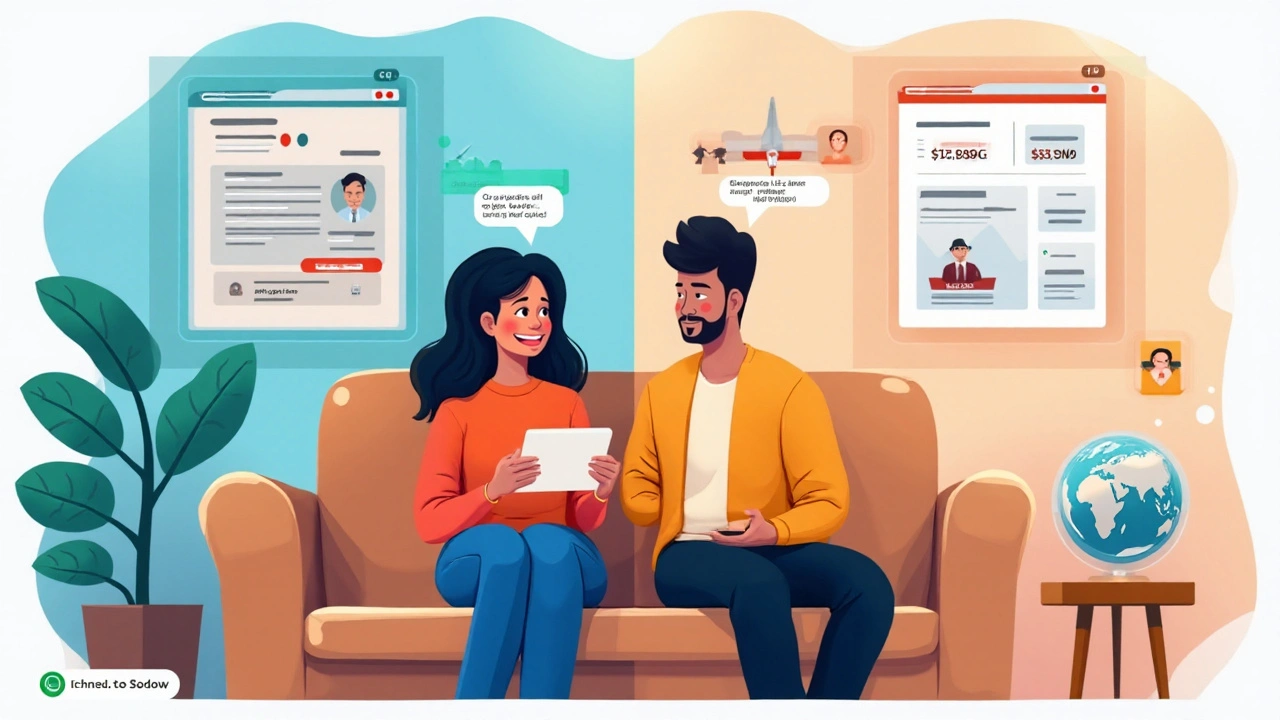
Risk, safeguards, and smart alternatives-and what to do next
Let’s get blunt about risk. Counterfeits are real. WHO’s analysis has flagged a meaningful risk of substandard/falsified meds when you use unverified sellers. In antipsychotics, even small potency errors can destabilize symptoms. Here’s how to keep yourself safe.
Safeguards that actually work:
- Verify the pharmacy: NZ’s Pharmacy Council register for local; for overseas, look for that country’s regulator approval or NABP accreditation, plus a real pharmacist you can speak to.
- Verify the product: known manufacturers (e.g., reputable generic companies), clear batch and expiry, intact tamper seals, and a proper product information leaflet.
- Keep records: photos of packaging on arrival, invoices, and batch numbers. They help if there’s a recall or customs question.
- Don’t self-adjust dose to stretch supply. If budget is tight, ask your prescriber about dose optimization, manufacturer consistency, or supported access options-not DIY dose cuts.
What if the price is still too high?
- Talk to your prescriber about alternative strengths that are cheaper per mg (e.g., one 10 mg vs two 5 mg tablets, if clinically suitable).
- Ask your pharmacist for a price on ODT vs standard tablets; often the standard tablets are cheaper unless you need ODT.
- Discuss other funded antipsychotics if clinically appropriate. Do not switch for price alone, but if efficacy/tolerability is similar for you, it’s reasonable to consider.
- Check if a local subsidy applies for your situation under the current Pharmac schedule; funding status can change year to year.
Generic vs brand (Abilify): generics meet bioequivalence standards. Some people feel different on a switch due to excipients or expectations. If you’re sensitive, ask the pharmacy to keep you on the same manufacturer. Document the brand/manufacturer that works for you.
Side effects and when to seek help (practical, not exhaustive):
- Restlessness/akathisia: call your prescriber; options include dose adjustment or supportive medicines.
- Sudden high fever, rigidity, confusion (possible NMS): emergency care immediately.
- Uncontrolled movements (possible TD): urgent prescriber review; earlier action is better.
- Worsening mood or suicidal thoughts: urgent mental health contact line or emergency services.
Mini-FAQ (quick answers you’re likely looking for):
- Do I need a prescription? Yes. In NZ, aripiprazole is prescription-only. Overseas sites that skip this are not legitimate.
- How much can I import? Up to 3 months’ personal supply, in original packaging, with your NZ prescription included.
- What if Customs detains my parcel? They’ll usually request documentation. If it’s missing or the product is unapproved/unsafe, it may be destroyed. You may not be refunded by the seller-another reason to use licensed pharmacies.
- Can I split tablets? Only if the tablet is scored and your prescriber agrees. ODTs are not for splitting unless specified.
- Is the oral solution better value? Usually not; it’s convenient for dose titration but costs more and can be trickier to ship.
- How long should I keep a buffer? 2-3 weeks is smart, especially if importing.
- Will switching manufacturer affect me? Usually no, but if you notice changes, ask to stick with a single brand of generic.
Scenarios and trade-offs (pick your lane):
- If you have a regular GP/psychiatrist: ask them to send the script to a licensed NZ mail-order pharmacy and request a quote. Fast, predictable, and the pharmacist can review interactions.
- If you’re between prescribers: book an appointment first. Buying abroad without a script is a dead end and risky.
- If money is the main issue: calculate price-per-mg, ask for larger packs (within 3-month limit), and compare NZ mail-order vs a reputable international pharmacy. Keep all costs (GST, shipping, currency fees) in the math.
- If you need it now: local pharmacy is still king. Even if it’s a few dollars more, continuity beats delays.
Next steps (do this in order):
- Get a valid prescription that matches the exact dose and form you’ll buy.
- Price-check two NZ options (local and mail-order) and one accredited international option.
- Use the checklist above to verify the pharmacy’s licence and product details.
- Order with at least a 2-3 week treatment buffer if importing.
- On arrival, inspect packaging, batch, and leaflet; log the batch number and expiry.
- Take as prescribed; report any side effects promptly.
Troubleshooting quick fixes:
- Package delayed: contact the seller with your order ID; ask for tracking and expected delivery; if you’re within a week of running out, see your local pharmacy or prescriber for an interim supply.
- Pills look different: check the manufacturer and imprint code; ask the pharmacist to confirm. Do not take if packaging looks tampered.
- Price suddenly jumped: ask for alternative strengths or manufacturers, and re-run the price-per-mg math. Consider switching your fill channel.
- Side effects after a supplier switch: note the date, manufacturer, and batch; talk to your prescriber. Staying with one manufacturer can help.
Credible references you can ask a pharmacist about: Medsafe guidance on buying medicines online (2023-2024), Pharmacy Council of NZ register, Pharmac Schedule (2025), FDA BeSafeRx (2024), NABP Digital Pharmacy accreditation, WHO analysis of substandard/falsified medical products (2017). You don’t need the links right now-your pharmacist will recognise these and can walk you through any details.
Bottom line: it’s absolutely possible to get a fair price on aripiprazole online and keep your treatment steady. Do the verification, run the per-mg math, and give yourself enough time. Convenience is great, but continuity and safety win every time.

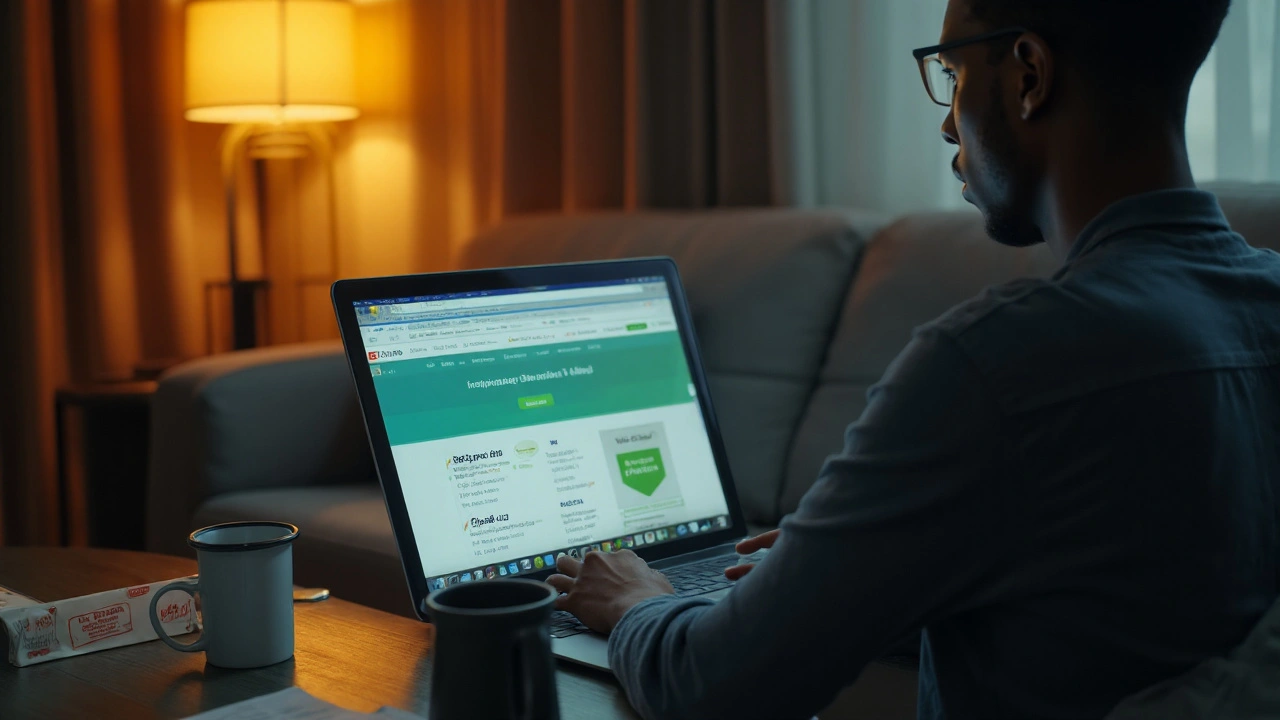


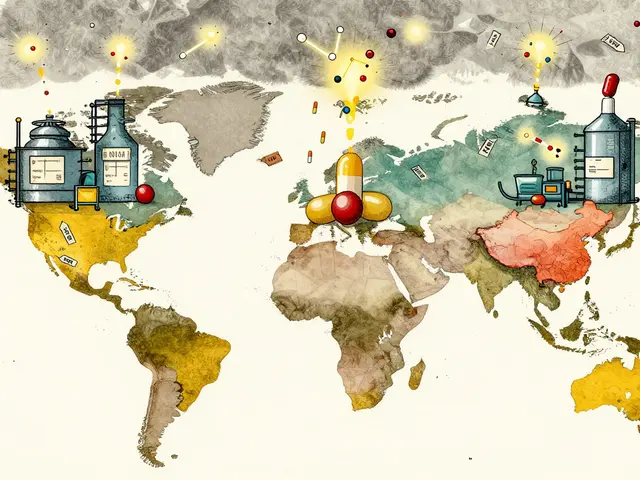

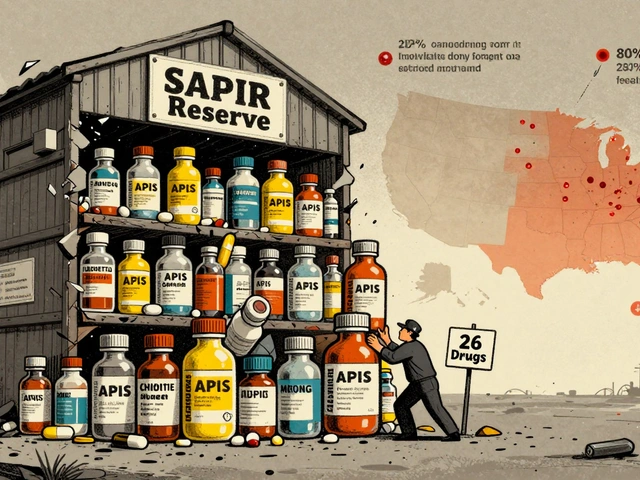

14 comments
Tiffany W
Buying a maintenance antipsychotic cheap isn't virtuous if it risks your stability, medicine is not a commodity you gamble with.
Stick to licensed channels, keep documentation, and never skip the pharmacist check - that's non-negotiable from a clinical governance standpoint.
Bioequivalence is the legal mechanism that makes generics acceptable, but it doesn't erase excipient sensitivity or practical patient-level variability that clinicians worry about when substitution occurs.
Batch numbers, expiry dates, and intact tamper seals are evidence items you must log on receipt, they are the sort of forensic details that protect you if something goes wrong or a recall happens.
Price-per-mg math is basic pharmacoeconomics, apply it consistently across strengths and pack sizes to avoid being manipulated by deceptive pack framing.
International sourcing is permissible under personal import rules but it's procedural, not adventurous, so treat it like a regulated import and preserve your paperwork.
Be mindful of enzyme interactions that alter aripiprazole exposure; this is pharmacokinetics, not anecdote, and it determines real-world effect size.
Community pharmacies provide a longitudinal oversight that an overseas script-free site cannot replicate, and that continuity is clinically meaningful.
Opt for the same manufacturer where possible to reduce confounding variables when tracking tolerability and adverse events.
Use the regulator registers to corroborate pharmacy licensing, those registers are authoritative and publicly auditable.
If cost is prohibitive, escalate to your prescriber for dose rationalisation or access pathways rather than improvising at the pharmacy counter.
Document any symptomatic change after a supplier switch with dates, batch and manufacturer, this empirical log matters when seeking clinical remediation.
For psychiatric meds, small potency deviations are not a mere inconvenience, they can materially alter mood and psychosis risk.
Think in terms of risk mitigation and stewardship, not bargain hunting; that perspective aligns with best-practice pharmacotherapy.
Preserve the therapeutic relationship and keep your pharmacist in the loop as part of your safety net.
Neviah Abrahams
Legit pharmacies only, obvious but apparently needs repeating
Don't buy from sketchy storefronts that ask for crypto or wire transfers, that is textbook fraud territory
Keep receipts and photos of packaging, they are evidence and you will need them if customs or your prescriber asks
Also, splitting tablets to stretch supply is a shortcut that often backfires when dosing precision matters
ODTs are pricier for a reason, they aren't interchangeable if swallowing is an issue and that matters clinically
allen doroteo
Buying abroad is overrated, ppl think they score but most times it is a headache
Save yourself the drama and check local first, shipping delays and customs are real time sucks
I once bought meds that looked different, took them once, felt off and returned to my regular pharmacy
Imprints and batch numbers matter, if pills show no imprint junk flag it
Also sometimes generics have weird fillers that give me stomach issues, so same maker matters
Corey Jost
Price is not the axis on which this should pivot; stability is the axis, and once you put stability first the rest becomes logistics rather than gambling.
Look, people always want to shave off costs, and that's rational from a household finance perspective, it's basic resource allocation, but psychiatric meds are a different category because they interface with neurobiology and social functioning in ways that make them high-stakes items.
If you imagine meds as mere commodities you miss the point that a small pharmacokinetic perturbation can cascade into weeks of destabilisation, lost work, and downstream healthcare utilisation that dwarfs any short-term saving.
When comparing overseas versus local you must include not only shipping and GST but also opportunity cost, the friction of delays, and the intangible risk of a forced provider switch if a shipment is detained.
Operationally, keep a buffer. Two to three weeks is not a luxury, it's a pragmatic hedge given pharmacodynamics and supply chain realities, and it buys time to troubleshoot without therapeutic interruption.
For clinicians and patients alike, manufacturer consistency reduces signal noise when assessing side effects; if a patient switches maker and reports new akathisia, you have to parse whether it's pharmacologic or idiosyncratic to the excipient profile.
Documentation is not bureaucratic busywork, it's a clinical safety net: photograph packaging, record lot and expiry, and retain invoices for at least the duration of the therapy plus a safety margin.
Meds regulatory frameworks exist for a reason; Medsafe, FDA, EMA-they standardise quality and provide recourse when things go wrong.
For those tempted by no-Rx sites offering rock-bottom prices, recall that the absence of a prescription is itself a major heuristic fail; legitimate pharmacies require verification because they are accountable.
Interactions via CYP enzymes are concrete pharmacology; strong inhibitors or inducers materially shift exposure and dosing needs to be adjusted, so a pharmacist review isn't optional.
Plan refills proactively, synchronise prescriptions, and use your prescriber-pharmacist axis as a co-managed plan rather than a last-minute scramble.
Lastly, if finances are the limiter, have the conversation with your prescriber, there are clinical pathways and substitution strategies that preserve efficacy without risking a DIY approach.
This isn't about policing thrift, it's about aligning thrift with safety and clinical outcomes.
Keep records and keep the professionals in the loop, that is how you reduce risk while managing cost.
felix rochas
They lie, they always lie!!!!
Sites with crazy low prices are fronts for fake mills selling junk that will wreck you!!!
Batch numbers missing is a neon sign of fraud and you must not accept that garbage.
Shipping that avoids customs documentation is deliberate concealment and evidence of illegal activity!!!
Pharmacies that only take crypto or gift cards are laundering money and should be reported.
Uju Okonkwo
Thanks for the practical checklist, it’s really helpful for folks who are overwhelmed navigating options.
Keeping a 2-3 week buffer saved me once when delays happened during holidays, that extra time kept my routine intact and avoided unnecessary stress.
Documenting batch numbers feels like overkill until you need it, then it’s priceless if there’s a recall.
Pharmacist contact is underrated, they provide a sanity check beyond price alone and often spot interactions.
Nick Ward
Short and plain: don’t risk fakes, use licensed pharmacies 🙂
Dheeraj Mehta
Good practical steps, concise and useful
Tracking the per-mg price is a neat tip, it simplifies comparisons and avoids being misled by pack framing
Also keeping the prescriber in the loop when you switch channels keeps clinical oversight intact :)
Oliver Behr
Clear checklist, very sensible approach for people overseas from NZ.
Regulatory verification should be first move, neat and simple.
inder kahlon
Check the pharmacist's license online and keep receipts, those two habits prevent most headaches.
ODTs are useful clinically but costlier, weigh need versus price.
Neviah Abrahams
Don’t be coy about documenting everything, it’s the single most useful thing you can do if a problem arises
Also insist on clear batch and expiry info, it’s not nitpicking it’s due diligence
Tiffany W
Agree with the emphasis on documentation, it's a medico-legal safeguard as much as a consumer protection tactic.
Pharmacovigilance starts with small acts: noting lot numbers, logging adverse events with dates, and keeping packaging until a disposal date is confirmed.
That record becomes the basis for any regulatory report or clinical review and can expedite recalls or refunds.
Dheeraj Mehta
Also keep the conversation with your prescriber open if you notice changes after a supplier switch, that reduces anxiety and preserves treatment fidelity :)
allen doroteo
Okay, long rant incoming but it's worth the scroll so listen up
First off, the whole idea that you can outsmart the system by buying abroad for pennies is fantasy economics dressed up as hustle, and in medicine that hustle has a real downside that people underplay because they focus only on the upfront cash saved without modelling the downstream costs
Second, the pharma supply chain is complex and every link matters, a dodgy printer on a blister pack, a mislabeled bottle, or an amateurish leaflet are not cosmetic issues they are signals of system drift and possible quality failures
Third, switching manufacturers to chase a lower unit price is like changing your coffee brand daily and then blaming the caffeine when your mornings go sideways, consistency is an underrated part of tolerability tracking
Fourth, the personal import rules exist because regulators balance access and safety, they are procedural friction designed to reduce harms, follow them and you reduce the probability of customs seizure
Fifth, think like a clinician when you plan supply not like a consumer, clinicians calculate half-lives, steady state, and refill buffers whereas consumers think only of instant gratification
Sixth, if you experience akathisia or mood swings after a supplier change, document the date, switch back if possible, and escalate to your prescriber quickly because early action prevents prolonged destabilisation
Seventh, if money is the only driver then have an honest conversation with the prescriber about therapeutic alternatives or funded options rather than self-rationing which leads to dose inconsistency
Eighth, pharmacists are gatekeepers with skills, use them as allies not obstacles, their place in the chain reduces risk and they can often suggest equivalent strengths or pack sizes that are more economical
Ninth, the per-mg math is a basic tool, learn it and use it always because sellers will try to obfuscate with pack sizes and price-per-tablet tricks
Tenth, real accreditation logos matter, but verify them on the regulator site rather than trusting a pasted image on a checkout page
Eleventh, if you want to be extra safe log photos of every side of the packaging when it arrives and keep them until the product expires, it's evidence that makes recalls and complaints easier
Twelfth, accepting parcels without documentation is negligence in a therapeutic context, always decline or query packages that seem incomplete
Thirteenth, the person who thinks they saved enough to justify risk usually doesn't account for lost wages, clinical visits, or the emotional toll of a psych episode
Fourteenth, supply chain safety is a public good so reporting suspicious sellers protects others as well as yourself
Fifteenth, if you incorporate these steps you keep cost-savings sensible rather than reckless and you stay in control of your treatment rather than losing control to a sketchy supply chain
That is the long and the short of it, be pragmatic and document everything